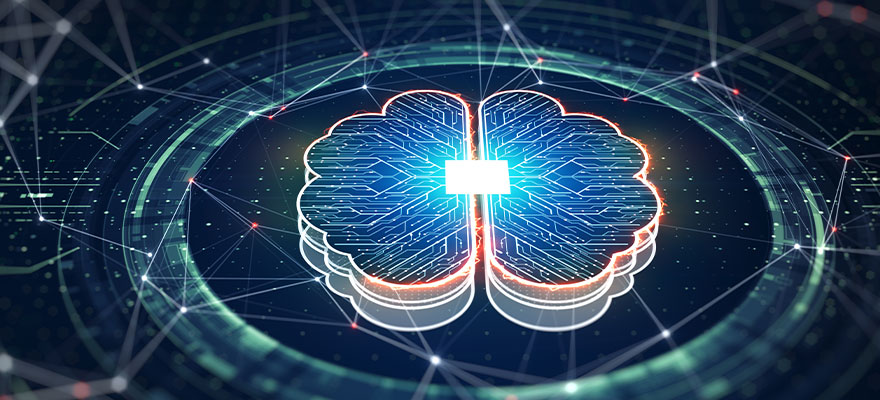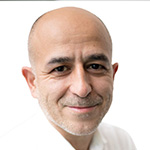Transcranial Pulse Stimulation (TPS) 2023 – Encouraging scientific developments
Results in practices are increasingly validated by research
Transcranial Pulse Stimulation (TPS) is one of those progressive achievements of modern medicine that herald a new era in the treatment of neurophysiological diseases. This is primarily, but not exclusively, about Transcranial Pulse Stimulation. In general, much is happening in the field of physical medicine in the areas of neurological and psychiatric disorders. Research and science are in the process of gaining a better understanding of the mechanisms of action and validating our successes in practice. In the following overview, you can read about what’s new in 2023 with regard to TPS and neurostimulation procedures per se
New studies, new findings: Further research into TPS shockwave therapy
The year 2023 has brought important advances in research into brain stimulation procedures, which open up new therapeutic possibilities for patients, medicine and society. With the rise of diseases such as Alzheimer’s, Parkinson’s, depression and the long-lasting effects of Covid-19, the search for effective treatments is becoming increasingly urgent.
One of the most exciting areas in this research is non-invasive brain stimulation techniques, or NIBS for short. These methods, which do not require surgery, are gaining increasing recognition as promising treatment options. They are not only a topic in neurology and psychiatry, but also offer new perspectives for patients and healthcare systems.
In terms of the increasing recognition of these procedures, deep brain stimulation (DBS) is an encouraging example, which was officially recognized this year as the first neurostimulation procedure for the treatment of Parkinson’s symptoms and included in the new guidelines. Although DBS is not a NIBS because it requires surgery, it shows how effective brain stimulation can be and that a paradigm shift is taking place in medicine and the healthcare system. This success gives hope that non-invasive methods will also reach this level in the future, heralding a new era in the treatment of brain diseases.
In addition to the non-invasive brain stimulation methods already available, such as deep magnetic stimulation (TMS), transcranial direct current stimulation (tDCS) and focused ultrasound stimulation (FUS), which are also attracting increased attention after decades of research, it is above all Transcranial Pulse Stimulation (TPS) that has become the focus of scientific attention and has made remarkable progress in 2023.
Transcranial Pulse Stimulation (TPS therapy): Outpatient procedure is increasingly recognized and used
More than 20 renowned universities and clinics worldwide are now conducting research into Transcranial Pulse Stimulation (TPS). After a significant increase in research results in 2022, six new studies and 15 further scientific publications and posters on TPS were presented in 2023, underlining the growing scientific interest in this form of therapy.
In addition to the proven safety and therapeutic benefits in Alzheimer’s dementia, the main indication for TPS, researchers are now also looking at other possible applications: These include Parkinson’s disease, other forms of dementia, fatigue, post-Covid syndromes, depression, autism and ADHD. TPS is also showing promising initial effects in these areas in scientific studies. This was confirmed, for example, by Prof. Lars Wojtecki from the Hospital zum Heiligen Geist Kempen and Heinrich Heine University Düsseldorf at an international expert meeting in November 2023, which was attended by over 60 experts from 14 countries. He stated that the TPS is now well on the way to becoming evidence-based.
Over 10,000 patients treated: TPS is increasingly proving its worth in Alzheimer’s therapy
The neuromodulation procedure of Transcranial Pulse Stimulation (TPS), which has been researched since the early 1990s, has gained international importance with the NEUROLITH shock wave system “for the treatment of the central nervous system in Alzheimer’s dementia”, which has been approved since August 2018. The therapy owes this rise in popularity to the significant benefits that TPS offers both patients and healthcare professionals. A key element is the outpatient nature of the procedure, with the short, low-energy shock wave pulses penetrating particularly deeply and precisely into the regions of the brain to be treated thanks to advanced technology. This feature clearly distinguishes TPS from other non-invasive brain stimulation methods, which are often more complex and have a smaller radius of action.
Another advantage of Transcranial Pulse Stimulation (TPS) is the efficiency of the treatment. Each session only lasts around 30 minutes and is well tolerated by patients, who can continue their daily rhythm of life without interruptions or restrictions. These short but effective treatments make TPS an attractive option for those seeking effective treatment with minimal disruption to their daily lives.
Research and practice coincide: TPS therapy can permanently slow down disease progression
Transcranial Pulse Stimulation (TPS) has so far shown remarkable results in clinical studies as well as in practice. In Alzheimer’s dementia, it has been able to halt or significantly slow down the progression of the disease. In addition, improvements in memory performance, executive functions and a reduction in depression have been observed in patients.
Another positive aspect is that these effects can last for years in long-term observations, especially if patients receive regular refresher treatments – usually a 30-minute session every six weeks. Importantly, only a few side effects such as mild headaches, fatigue or dizziness have been reported. These are mild, affect only around four percent of patients and subside within a short time without additional medication.
Criticism of Transcranial Pulse Stimulation (TPS) is becoming quieter: scientific evidence is growing
In 2021 and early 2022, criticism of TPS therapy had also emerged: Although seen as an ‘interesting possibility with potential for the future’, associations at the time criticized the lack of larger studies, especially placebo-controlled ones. The same applied to other non-invasive brain stimulation methods.
In the meantime, the tide has turned: with the increasing number of studies and patients, the more extensive use of brain stimulation: With the increasing number of studies and higher patient numbers, the more extensive evidence of the mechanisms of action of TPS ((mechanotransduction and thus the increase in cell permeability to promote the permeability of cell membranes, release of neurotransmitters such as VEGF, increase in the messenger substances serotonin and dopamine, release of nitric oxide as well as production, differentiation and migration of stem cells and correlation of low BDNF concentrations in the brain, opening of the blood-brain barrier, to name just a few factors) and the intensive research at renowned universities, we are now aggressively and eagerly awaiting future data.
New era in medicine: brain stimulation as a key element of advanced therapies
Some experts agree that brain stimulation techniques will play a decisive role in the fight against neurological and psychiatric diseases in the future, both from a medical and social perspective. The German Society for Clinical Neurophysiology and Functional Imaging (DGKN), for example, emphasized in a press release dated February 28, 2023, that these promising treatment methods could significantly improve patient care in the future.
The Center for Responsible Research and Innovation (CeRRi) at the Fraunhofer Institute for Industrial Engineering (IAO) goes even further. In their July 2023 white paper, they presented a vision in which non-invasive brain stimulation (NIBS) techniques play a central role in a desirable future within the EU. They emphasize that technological therapeutic approaches are crucial for a healthier population. Further information can be found at: https://publica.fraunhofer.de/entities/publication/c305e42c-4c07-497c-8860-460ccb5e0a7c/details ).
Hidden voices: Why patient and doctor experiences need to be heard more
Despite their increasing importance, non-invasive brain stimulation techniques (NIBS) still receive too little media and public attention, as the Fraunhofer Institute also criticizes in its white paper. In contrast, new antibody drugs such as lecanemab and donanemab are frequently discussed, often with great promises to those affected. However, mention of NIBS in the media remains (still) limited.
On World Alzheimer’s Day 2023 on September 21, 2023, however, there was a ray of hope: Prof. Ullrich Wüllner, Director of the Clinic for Neurodegenerative Diseases at Bonn University Hospital, was interviewed by “RTL Aktuell” about Transcranial Pulse Stimulation (TPS). He also reported stable disease progression in two thirds of his patients, with no deterioration in their mental performance. Despite the early stage of his scientific work on TPS, Prof. Wüllner is optimistic and holds out the prospect of further studies, including on Parkinson’s disease, to “Alzheimer Deutschland” (see: https://www.tps-therapie.de/en/tps-news/general/shock-wave-therapy-tps-rtl-world-alzheimers-day ).
Many patients and their relatives who have benefited from TPS report significant improvements in their quality of life and that it has lasted for years. Doctors who use TPS confirm these successes: their patients experience noticeable improvements in memory and executive functions, a reduction in depression and anxiety and a decrease in social withdrawal. The doctors working with TPS agree that this effective, side-effect-free therapy leads to a renewed everyday life worth living.
Despite these successes, both patients and we agree that innovative therapies such as TPS are still far too difficult to find. Patients often only access such treatments through their own research and initiative, which is regrettable given the urgency for millions of patients and long overburdened healthcare systems.
In our practices in Hamburg and Bochum, we will continue to work to ensure that as many sufferers as possible are helped with TPS therapy!


